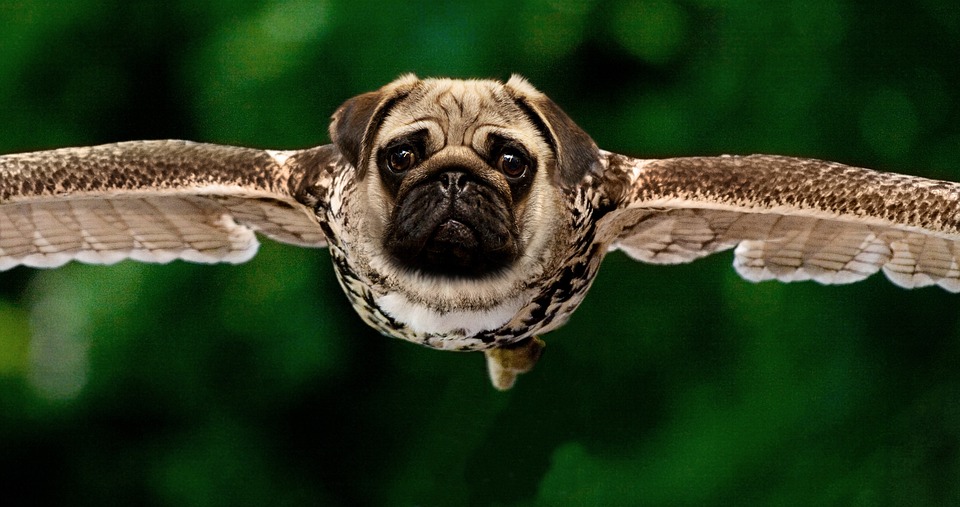Preventing and Managing Common Eye Irritations in Dogs
As dog owners, we always strive to keep our furry friends happy and healthy. One aspect of their well-being that deserves special attention is their eye health. Dogs are prone to various eye irritations, which can cause discomfort and even lead to more serious issues if left untreated. In this article, we will explore effective ways to prevent and manage common eye irritations in dogs, ensuring their eyes stay bright, clear, and healthy.
Understanding Common Eye Irritations in Dogs
Before we delve into prevention and management techniques, it’s essential to familiarize ourselves with common eye irritations that affect dogs. Below are some of the most frequently encountered eye conditions:
1. Conjunctivitis: Also known as pink eye, conjunctivitis is characterized by redness, swelling, and discharge in the conjunctiva, the thin membrane covering the inner surface of the eyelids and the whites of the eyes. It can be caused by allergies, infections, foreign bodies, or environmental factors such as dust or smoke.
2. Corneal Ulcers: Corneal ulcers are open sores on the cornea, the clear outer layer of the eye. They can occur due to trauma, foreign objects, or underlying eye conditions. Symptoms include excessive tearing, squinting, redness, and a cloudy appearance in the affected eye.
3. Dry Eye: Also known as keratoconjunctivitis sicca (KCS), dry eye occurs when a dog’s tear glands do not produce enough tears to keep the eyes adequately lubricated. This can lead to irritation, redness, discharge, and even corneal damage.
4. Entropion: Entropion is a condition where the eyelid folds inward, causing the lashes to rub against the cornea. This can lead to corneal ulcers, excessive tearing, squinting, and sensitivity to light.
Prevention Tips for Dog Eye Irritations
Prevention is always better than cure when it comes to your dog’s eye health. By following these simple guidelines, you can significantly reduce the risk of eye irritations:
1. Regular Eye Examinations: Schedule regular visits to your veterinarian for comprehensive eye examinations. Early detection of any underlying conditions can prevent potential eye irritations.
2. Maintain Proper Hygiene: Keep your dog’s face clean by gently wiping around their eyes with a damp, soft cloth. This prevents the accumulation of dirt, dust, and debris that can lead to irritations.
3. Avoid Irritants: Protect your dog’s eyes from potential irritants by keeping them away from smoke, chemicals, and excessive dust. If your dog has allergies, identify and minimize exposure to allergens that can trigger eye irritations.
4. Trim Long Hair: If your dog has long hair, ensure it doesn’t obstruct their vision or touch their eyes. Regular grooming and trimming around the eye area can prevent hairs from scratching the cornea.
Managing Common Eye Irritations in Dogs
Despite our best efforts, dogs can still develop eye irritations. Here are some effective management strategies for common eye conditions:
1. Seek Veterinary Advice: If you notice any changes in your dog’s eyes, such as redness, discharge, or excessive tearing, it’s crucial to consult your veterinarian. They can accurately diagnose the issue and provide appropriate treatment options.
2. Follow Medication Instructions: If your veterinarian prescribes medication, ensure you administer it as directed. Eye drops or ointments can effectively treat many eye irritations, but consistency is key for successful management.
3. Provide a Calm Environment: Create a calm and comfortable environment for your dog during their recovery. Minimize exposure to bright lights and loud noises, which can exacerbate eye irritations.
4. Prevent Self-Trauma: Dogs with eye irritations may be tempted to scratch or rub their eyes, worsening the condition. Consider using a cone-shaped protective collar to prevent self-inflicted injuries while allowing the eyes to heal.
Frequently Asked Questions (FAQs)
Q: Can I use over-the-counter eye drops for my dog’s eye irritations?
A: No, it’s crucial to consult your veterinarian before using any medication on your dog’s eyes. Some human eye drops can be harmful to dogs.
Q: Can dog eye irritations be contagious?
A: Yes, certain eye infections, such as conjunctivitis, can be contagious. Avoid contact between infected dogs and other pets to prevent the spread of infection.
Q: Are certain dog breeds more prone to eye irritations?
A: Yes, some breeds, such as Bulldogs, Pugs, and Shih Tzus, are more susceptible to eye problems due to their facial structure and prominent eyes. Regular eye care is especially important for these breeds.
Q: Can diet affect my dog’s eye health?
A: A balanced diet rich in essential nutrients, including omega-3 fatty acids, can contribute to your dog’s overall eye health. Consult your veterinarian for specific dietary recommendations.
By prioritizing preventive measures and promptly addressing any eye irritations, you can ensure your dog enjoys optimal eye health. Remember, a happy and healthy dog starts with attentive care and regular veterinary check-ups.









